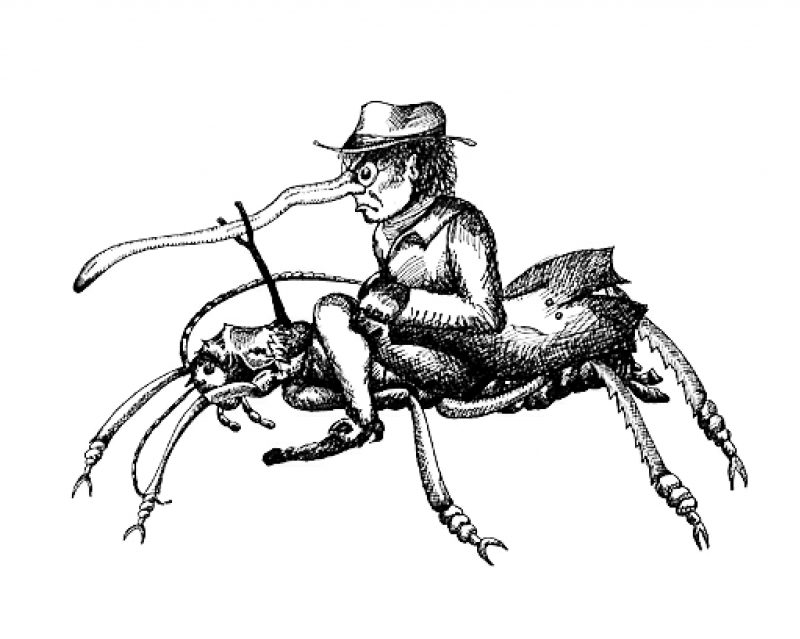I saw a question on Twitter: Can readers become emotionally invested in a story if the main character is interesting but not sympathetic? My answer was that I need characters that I can care about. A superhero that has all kinds of cool and interesting superpowers is ultimately boring unless there is an emotional narrative that I can care about. I think the most important answer an author can give to their readers in the first few pages (or paragraphs) of their book is why they should care enough to read more? And that answer is always why the reader should care. I find that caring about sympathetic characters is easier than for villains, no matter how interesting those villains are. I can go for a story about a young kid who grows up to be a villain because the world forces him to become one — he wasn’t born evil, he was made to be. Villany was forced on an innocent soul in order to survive. But this just means that I’m reading a tragedy.
There are lots of different types of stories. It’s never about the genre. Science fiction is just fantasy wrapped up in fancy techtalk. Romance is still a romance even when the lead is an elf or an alien or a time traveler. Detective stories are still crime dramas even if they feature talking dogs. Those who prefer to read only realism are still engaging in fiction. Even historical accounts are mostly fiction hung on dates, places, and events as we remember them. If victors write history books, then all histories are fictional to one degree or another.
There are some narrative tools that appear over and over again in fiction, regardless of genre. It’s easy to spot them when reading book descriptions (because book descriptions are written to sell books and want to sound familiar to their prospective readers). For example, there is a category of stories about found objects. Some call them The Dragon Egg stories. These stories feature a protagonist that comes across an object or a person that changes their lives and sends them on a Hero’s Journey. It could literally be a dragon’s egg: does Daenerys Targaryen ring a bell? Lots of times it’s a manuscript (or a book, or a letter, or voice mail, or a note in a bottle, etc.) that contains a secret solution to a problem, or a treasure map, or some unexpected news about family’s mysterious history (you are a witch after all, just as you have always suspected). But many times it’s an actual treasure box, or a magical item that can fulfill one’s heart’s desire, or a spaceship, or the one ring that rules them all, or a lamp with a trapped jin. And, of course, it could a grandmother, or a witch, or an alien, or a deep throat, or a fairy godmother. Stories of this kind are all about how an ordinary person finds something that changes their lives forever and they spend the rest of the book coming to terms with who they really are.
There are so many variations on this type of story that those who love this narrative will never run out of reading material! These found objects get weighted based on the emotional response they evoke. These objects generate an Emotional Field — it’s like gravity, but the “weight” is measured by the amount of emotion generated in the people the object comes in contact with. Stories about these objects — cursed, lucky, memory-bound — are what carry the Emotion Field. There are negative and positive Emotion Fields. Horror stories focus on the former. But even immersed in a negative emotion field, readers need to care about someone. They have to like the hero of the story, no matter how flawed that person is. Well, that’s true for me. I write books that have likable protagonists.
Another type of story deals with metamorphosis. Sure, there’s Kafka. But people change in all kinds of ways and not many transform all the way into another animal phylum. Superheros and vampire stories tend to fall into the metamorphosis category — zero to hero, human to bloodsucker, man to roach. Things get more interesting when Dragon Egg and Metamorphosis stories braid together to form a more complex narrative. Usually, this happens by laying the dragon egg in the first third of the story and then, using its magical powers, transforming the protagonist (sometimes against his will) into something very different for the rest of the narrative.

There are many such standard story types that writers play with and sculpt to create something from something very old. Dragon Eggs and Metamorphosis stories go way way back (think Greek mythology, for example). Science fiction is just as fond of Dragon Eggs as high fantasy — discovering ancient alien technology has always been a fan favorite. Some of my stories are very difficult to pin down — is it fantasy or science fiction? Well, it depends. And sometimes it depends on which writing competition I’m submitting my story to!
This month is the start of yet another Fantasy Competition — The 2022 Official Self-Published Fantasy Blog-Off [#SPFBO]. This competition is in its 8th year! God of Small Affairs came in as a semi-finalist a few years back. Twin Time didn’t do as well (quarter-finalist), even as it is a better story, in my opinion. This year, I’m entering Pigeon. It will be interesting to see how this story survives the blog competition. It’s a story about a boy who learned he could fly the morning of his mother’s death — I wanted to start the story with a good reason for its readers to care about my little hero. To kick off the start of the competition, I’ve made Pigeon free on Amazon for 5 days starting from May 15th. Enjoy!
And who knows? If this goes well, I will finally finish book two of this story…

